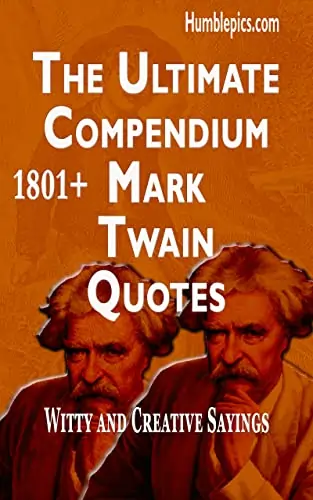Samuel Clemens, better known as Mark Twain, wasn’t just a humorist; he was a surgeon. With a scalpel of biting wit, he dissected the follies of human nature, politics, and society in a way that remains painfully relevant today. His most powerful quotes aren’t just jokes; they are timeless diagnoses of our modern problems.
Let’s explore five pieces of his timeless satire that prove, over a century later, we haven’t changed as much as we think.
Mark Twain: 5 Timeless Lessons
Wit and wisdom on politics, truth, and human nature that resonates more today than ever before.
On Politics and Government
A core message of deep-seated frustration with political bureaucracy. Twain saw how often political theater overshadowed common sense. It resonates today as systems often feel out of touch with reality.
On Information and Lies
Twain perfectly described viral misinformation a century ago. In the age of “fake news,” this is a reminder to value the slow, methodical process of finding the truth.
On Peer Pressure
Twain was suspicious of “mob mentality,” arguing that popularity doesn’t equal correctness. We must have the courage to question our beliefs and ensure our convictions are our own.
Education vs. Intelligence
Twain distinguished between “schooling” (rote memorization) and “education” (wisdom). True intelligence isn’t about diplomas, but a lifelong commitment to curiosity.
On Human Nature
A paradox of the human condition. We are capable of high morality, but also profound hypocrisy. It is a humbling observation that we are the only species that needs shame.
1. Lesson: On Politics and Government
“Suppose you were an idiot. And suppose you were a member of Congress. But I repeat myself.”
This is one of Twain’s most famous and brutal lines. While it’s easy to laugh, its core message is a deep-seated frustration with political bureaucracy. Twain saw how often political theater and self-interest overshadowed common sense and the public good. This quote resonates so strongly today because we still feel that same frustration—that sense that our systems are often inefficient by design, run by people who are out of touch with reality.
2. Lesson: On Information and Lies
“A lie can travel halfway around the world while the truth is still putting on its shoes.”
Twain said this over 100 years before the invention of the internet, yet he perfectly described the mechanics of viral misinformation. In our age of social media, “fake news” and sensational headlines spread like wildfire, while the nuanced, complex truth struggles to keep up. This quote is a critical reminder to be skeptical of the information we consume and to value the slow, methodical process of finding the truth.
3. Lesson: On Conformity and Peer Pressure
“Whenever you find yourself on the side of the majority, it is time to pause and reflect.”
This is a powerful call for independent thought. Twain was deeply suspicious of “mob mentality” and the blind comfort of consensus. He argued that just because an idea is popular doesn’t make it right. This lesson is a challenge to all of us: to have the courage to question our own beliefs, to stand apart from the crowd, and to ensure our convictions are our own, not just a product of our social circle.
4. Lesson: On Education vs. Intelligence
“I have never let my schooling interfere with my education.”
Twain was a fierce advocate for real-world learning and critical thinking, and he was often critical of rigid, formal education systems. He believed that “schooling” (rote memorization, dogma) could often get in the way of “education” (curiosity, wisdom, and understanding the world). It’s a lesson that true intelligence isn’t about the diplomas on your wall; it’s about a lifelong commitment to learning, observing, and thinking for yourself.
5. Lesson: On Human Nature
“Man is the only animal that blushes. Or needs to.”
In one short sentence, Twain captures the paradox of the human condition. We are the only species capable of such high-minded morality, and yet we are also the only species capable of such profound hypocrisy, cruelty, and absurdity that we need a concept like shame. It’s a humbling, witty, and deeply philosophical observation on our place in the animal kingdom.
Mark Twain’s humor was a delivery system for sharp, uncomfortable truths. His observations on politics, media, and human nature are as potent today as they were in the 19th century.
If you enjoyed this analysis of his wit, it was inspired by the full collection in our book, 1801 Mark Twain quotes: The ultimate compendium. You can get all 1801 of his witty and creative sayings in our complete volume, available now on Amazon.



